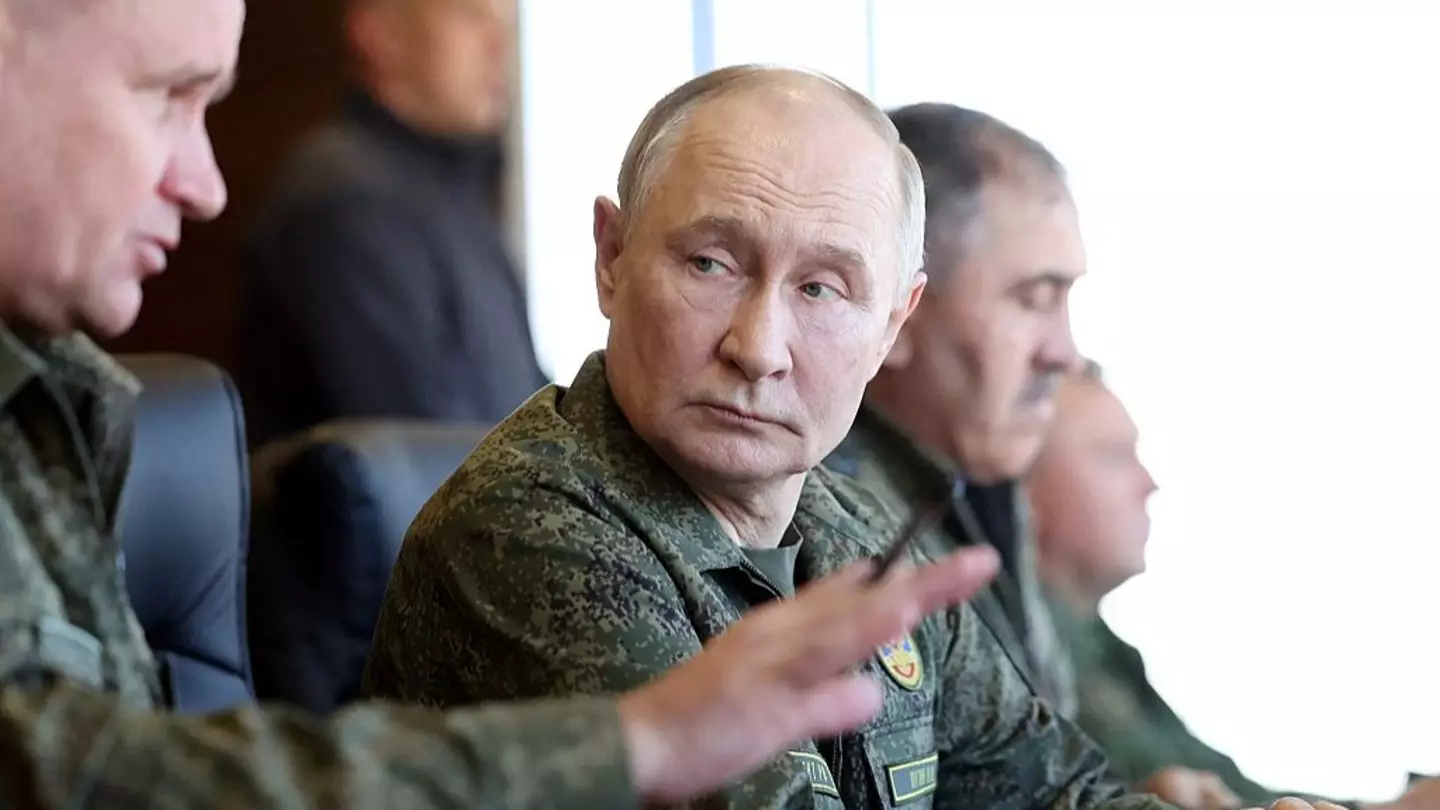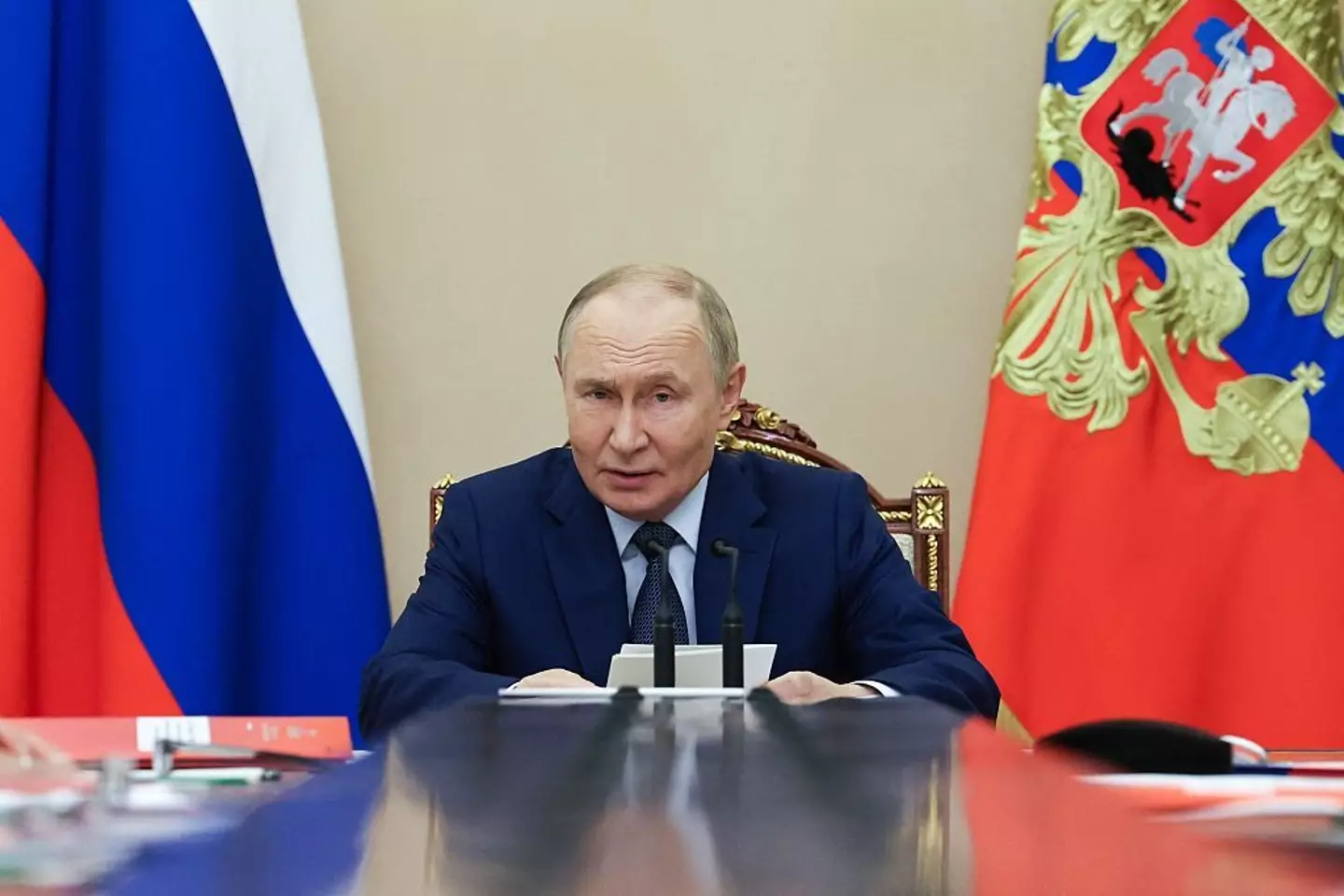
European ministers are considering a 'drone wall' in the wake of several drone attacks at airports across Scandinavia.
Denmark, Finland, Poland and the Baltic states are joining Ukraine for a summit today to make plans for the wall, after a representative said spotting drones 'is not super-easy to do'.
Four airports in Denmark were thrown into chaos following a series of drone attacks.
Danish defence minister Troels Lund Poulsen said: "There can be no doubt that everything points to this being the work of a professional actor when we are talking about such a systematic operation in so many locations at virtually the same time.
Advert
"This is what I would define as a hybrid attack using different types of drones. This is an arms race against time because technology is constantly evolving."
Police in Denmark have revealed they are looking into whether the drones were launched from ships in an area where two Russian vessels had been seen.

Poland has also vowed to strike down any 'hostile objects' over Ukraine's airspace, after already taking down several of Vladimir Putin's drones in the last few weeks.
Polish prime minister Donald Tusk said 'the situation brings us the closest we have been to open conflict since World War Two'.
He said: "We will take the decision to shoot down flying objects when they violate our territory and fly over Poland - there is absolutely no discussion about that."
Following their warning, Russia responded strongly with a message of their own, with their ambassador insisting shooting down its planes 'would be war'.
The Kremlin has warned that any strikes on their aircraft would be a conflict with NATO.
EU chief Ursula von der Leyen believes a drone wall will provide 'the bedrock of credible defence'.
European defence commissioner Andrius Kubilius is keen to get the discussion going, telling Reuters in a telephone interview: "We want really to move ahead with very, very intensive and effective preparations to start to fill this gap, which is really very dangerous for us... as quickly as we can do it.
"I just came back from Kyiv two days ago and we were talking both with the government and also with industry. They're keen to share their experience and know-how."
The meeting is expected to involve discussions around detecting and destroying drones, which could be covered by the €150bn Security Action for Europe loans scheme.
After Denmark's complaints, NATO secretary general Mark Rutte said: "NATO allies and Denmark are working together on how we can ensure the safety and security of our critical infrastructure."
.jpg)
Commission spokesman Thomas Regnier said: "One thing that we will have to do is detect these incoming drones. This is not super-easy to do.
"We're not talking about big fighter jets and planes coming in. No, we are talking about the latest technology developments.
"These drones have to be detected, and then, second track [will be to decide] what will we do to fight back against these drones."
Following the accusations of Russian involvement with the Denmark airport drones, Moscow's embassy in Copenhagen called the claims 'absurd'.
They said the events were nothing more than 'staged provocation' to make things worse.
Russian ambassador to France Alexey Meshkov told RTL: "You know, there are many NATO planes that violate Russian airspace, deliberately or not, but it happens quite often. They are not shot down afterward."
"Russia doesn't do that, play with anyone. It's not really our thing," he insisted, adding 'it would be war' if NATO brought down their planes.
Donald Trump also said that NATO states should shoot down any Russian aircraft that invades their airspace.
The UK has been involved too, as defence minister Luke Pollard said: "Russian warships are increasingly transiting through the English Channel. The Royal Navy protects the UK 24/7 to monitor Russian movements, ensuring the security of our waters and undersea cables. Alongside our commitment to NATO's Eastern Sentry, this is a clear demonstration of how the UK stands firm with our NATO allies to deter Russian aggression."
The Royal Navy recently sent HMS Iron Duke and a Wildcat helicopter to follow the Russian frigate RFN Neustrashimy, as well as a cargo ship, Sparta IV, when they entered the English Channel.
Topics: Vladimir Putin, Russia, Europe, Politics